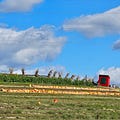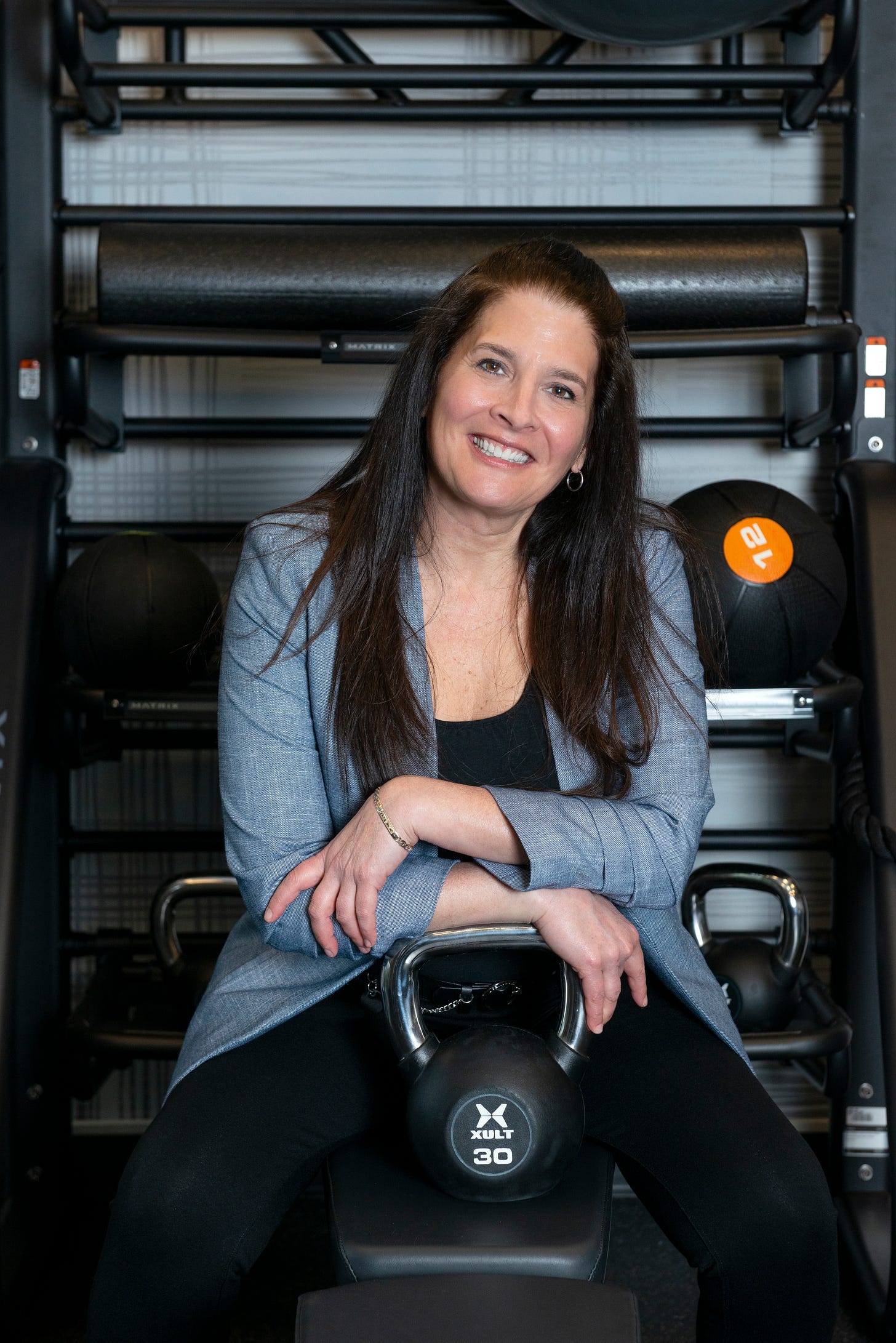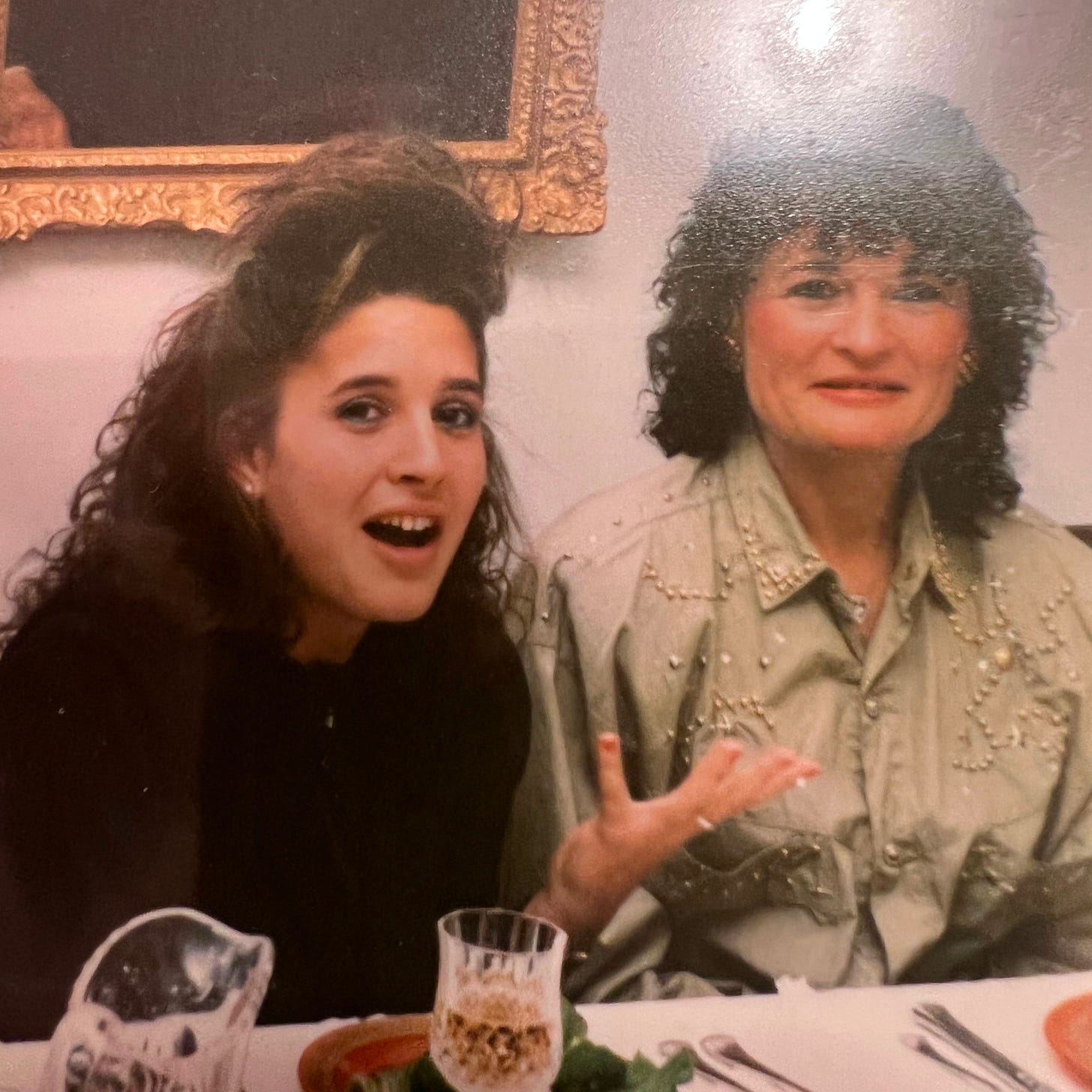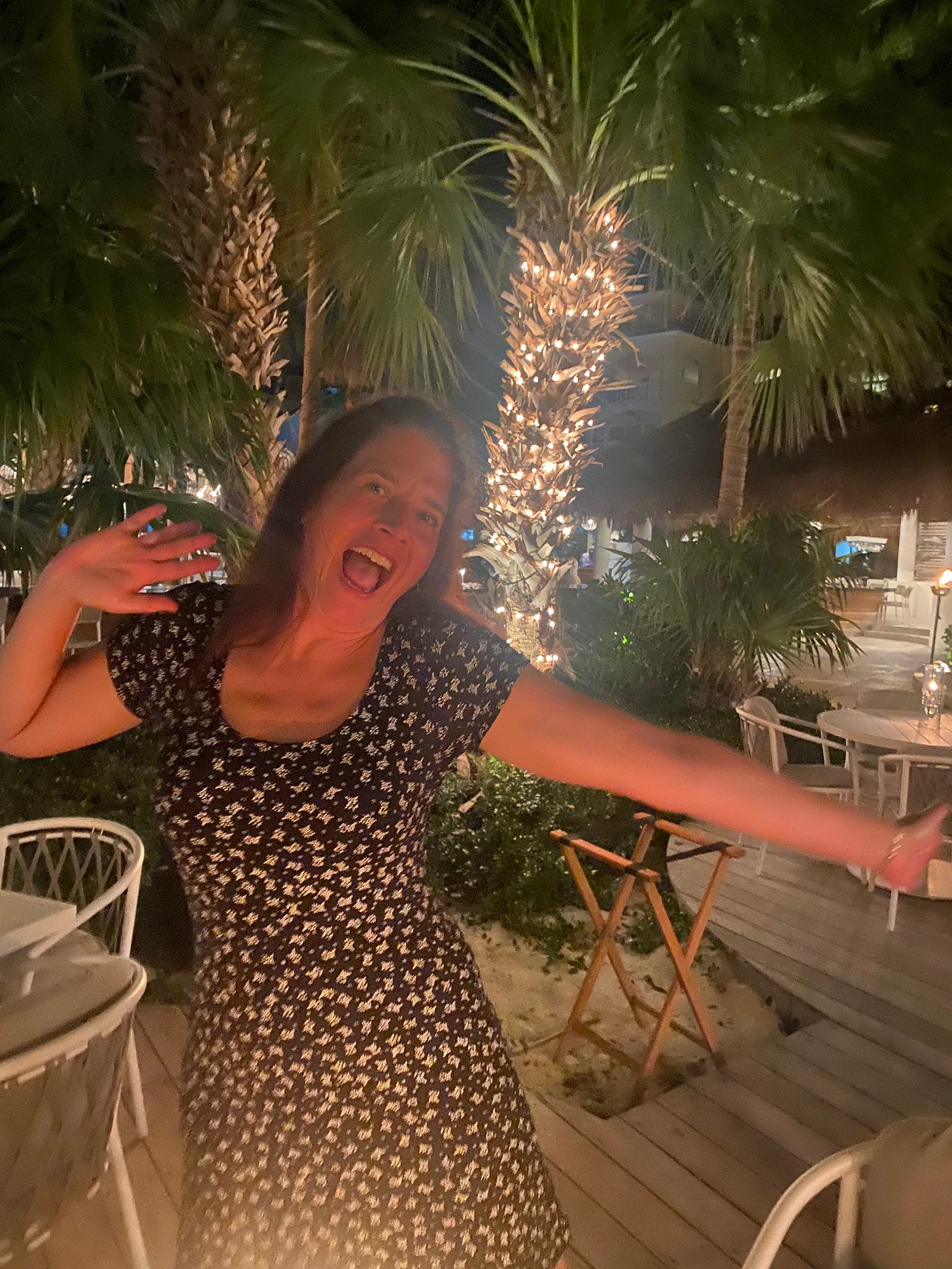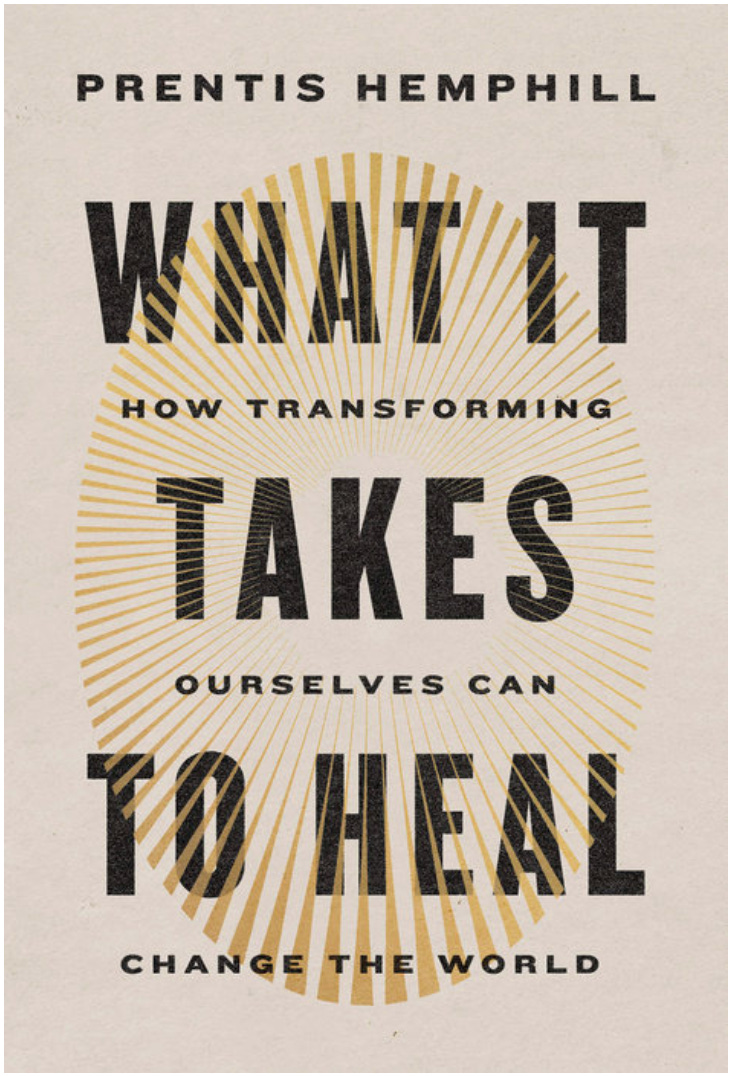For Those Who Don't Like To Cook & Three Questions with Nina Israel
Redefining cooking, reclaiming wellness, and recommendations on stuff to read or listen to while you roast some sweet potatoes.
October has been Octobering. So far I went apple and pumpkin picking with my girlfriend, contemplated a Halloween costume, spent ample time admiring leaves and trying to decide if I like the gold or crimson leaves better, and cooked four different seasonal squashes—honeynut, delicata, acorn, and butternut.
I also had the pleasure of co-teaching a two-part Workshop, Writing As A Pathway to Healing with Lisa Weinert of Narrative Healing. If you are interested in learning more about this workshop or my program for retreats, Embodied Travel Journaling, please email me at laura@laurakhoudari.com.
Hopefully you will find October’s newsletter as exciting as a full sized candy bar in your trick-or-treat bag!
This month’s essay is For Those Who Don’t Like To Cook—of course if you do like to cook I invite you to read it too!
In Three Questions with Nina Israel we look at a dimension of wellness we seldom talk directly about—financial wellness.
And in Until Next Time I write about Prentis Hemphill’s new book, an NPR podcast that looks closely at those historical markers you may notice everywhere but seldom read, and a non-recipe sort of recipe for making mashed sweet potatoes in a way that will suit your palette.
For Those Who Don't Like To Cook
Late last month, I had the pleasure of recording an episode of Life After Diets, a podcast dedicated to “all things related to disordered eating, bad body image, and creating a life that’s free from food and body obsession” with Sarah Dosanjh and Stefanie Michele. During our conversation Sarah shared that she doesn’t really like to cook and asked me for my thoughts on “cooking when you don’t like to.”
I replied, something to the extent of, “If you have another means to nourish yourself, then do that! I am not here to tell anyone that they ought to be doing anything in particular.” I reminded folks that any advice, tools, or recipes I share are intended as options for others to take or leave as they see fit.
I woke up the next morning, turned the coffee maker on and set about my morning chores. As the coffee brewed and I unloaded my dishwasher I thought more about Sarah’s question. I wished I had replied to her question with my own: “What does cooking look like for you?” I realized that if you have a narrow view of what cooking is, it is easy to write it off as something you don’t enjoy.
If you are feeling bogged down by the mere idea of cooking, I invite you to ask yourself if you have confined your concept of cooking to a narrow definition. Does it mean following a recipe or challenging yourself to make something new? Or perhaps you think of cooking as being a magical kitchen witch who never looks at a recipe and makes divine dishes off the cuff? I think that many folks have a somewhat limiting definition of what it means to cook.
Cooking is quite simply the act of preparing food for eating, and usually it implies some heating. Following a complicated recipe from a back issue of Gourmet, making mom’s roast and mashed potatoes without instructions, and preparing ramen noodles with or without it’s potent little seasoning pouch is cooking.
Maybe life could be a little easier if you considered making boxed mac and cheese cooking—it is. I often cook up a meal by scrambling an egg or two into leftover rice. I add something green if I have it and want to and maybe season it with coconut aminos. It counts! It is cooking.
And sometimes people say they don’t like cooking because they are contending with cooking doldrums—a stagnation in the kitchen that leads to cookery depression. I have found that this can be combated with a more varied approach to cooking. When relying on recipes feels oppressive, I cook off the cuff and make simpler and more familiar meals. And when I don’t feel like being so creative, recipes find their way back to my repertoire.
If you are among the zillions of people who “don’t like to cook,” to you I say, that’s fine. There are a lot of things I don’t like to do and don’t do. But before you write it off completely or worse, get upset with yourself for not liking to cook, I invite you to consider that perhaps you have simply confined yourself to one approach to cooking when in fact there are so many ways to make a meal. And of course, if you have another means to nourish yourself, then do that instead.
Three Questions with Nina Israel
1. Part of my work is to reclaim the word "wellness" from marketing teams inside the beauty, diet, and fitness industries. You and I have had a couple of conversations (usually over tacos) about how we can tend to ourselves. I am curious how you would define wellness for yourself?
Ah, wellness—it’s such a rich word, isn’t it? To me, wellness is about feeling whole and cared for in all areas of life. It’s not just the gym workouts or the green juices (though I do love a good smoothie!); it’s about how we nurture every part of ourselves—mentally, emotionally, physically, and yes, financially. If even one area is off balance, like when money worries creep in, it can throw everything else out of sync. So, for me, wellness is about making sure all the pieces are in harmony, tending to each part of ourselves as if we’re tending to a garden. The more we nourish each area, the more we thrive as a whole.
2. Many people might not think of a financial and business consultant for boutique fitness studios as a wellness professional, but I do! Financial wellness is part of balancing our entire life! What are some ways in which what you do and how you approach it supports clients' wellness?
I couldn’t agree more! Financial wellness is such an integral part of feeling balanced in life. When I work with clients, especially in the wellness industry, we dive deep into their "money story"—that narrative we all carry about finances, often shaped by our upbringing, experiences, and even societal pressure. This story influences how we feel about money, how we manage it, and ultimately how much stress or ease it brings into our lives.
For so many wellness entrepreneurs, there’s a lot of fear or shame wrapped up in money—whether it’s feeling uncertain about pricing, overwhelmed by financial responsibilities, or afraid to invest in themselves. That’s where I come in! I help them unpack those old, limiting beliefs and rewrite their money story into something empowering. It’s about shifting from a place of fear to a place of control and confidence. And when that happens, the weight of financial stress lifts. They start to make decisions that feel aligned with their values, which helps them grow their businesses in a way that supports their overall wellness. It’s all connected: when your money is in balance, it clears the path for everything else to flourish.
3. If you could give a piece of financial advice to your eighteen-year-old self, what would it be?
Oh, if I could go back in time, I’d pull up a chair and tell my eighteen-year-old self, “Start now, even if it feels small.” I’d say, "Don’t wait until you think you know everything about money because, guess what—compound interest doesn’t care!" It’s all about starting with what you have, learning as you go, and building good habits. I’d remind myself that money is not just a tool…it’s energy. And it’s definitely not something to be intimidated by. I’d also stress the importance of saving, investing early, and taking advantage of all the years you have ahead. It doesn’t matter if it’s a small amount; what matters is getting in the reps and building the habit. The earlier you start, the more freedom you’ll create for yourself down the line.
Thank you for sharing a bit about how wellness is part of your work, Nina! Please let interested folks know how they can learn more about you and work with you!
It’s been a joy to chat about this! If anyone out there is ready to take control of their finances and bring more balance to their life and business, I’m here to help. You can find me at Taryn Financial, where I offer financial coaching, workshops, and personalized support for wellness entrepreneurs who want to feel more confident and empowered with their money. My approach is about making financial wellness approachable (and fun!)so you can focus on the work you love without stressing over the numbers. And hey, if you’re curious about how to infuse financial peace into your everyday life, please reach out to me at nina@tarynfinancial.com for tips, insights, and a dash of encouragement. Let’s make financial wellness part of your wellness journey!
Nina Israel is an advocate for financial wellness. She is a financial educator, business strategist, and your money mentor. She is also a 25-year veteran of making your books make sense to you. She believes that finance should be easy and, more importantly, fun. As the founder of Taryn Financial, Nina is deeply dedicated to financial education and uses a holistic approach to help small business owners gain financial clarity, improve cash flow, and develop new confidence in their numbers. Based on her work with hundreds of business owners, Nina created her innovative program, Strength in Numbers, to help her clients reduce anxiety, boost profitability, and make sense of their money through laughter, learning and a proven financial system.
READ Prentis Hemphill’s What it Takes to Heal: How Transforming Ourselves Can Change the World. In this beautifully written, thoughtful, and informative book Hemphill “asserts that the principles of embodiment—the recognition of our body’s sensations and habits, and the beliefs that inform them—are critical to lasting healing and change.” Hemphill clearly maps how healing ourselves is crucial to social justice and creating systemic change.
LISTEN to Off the Mark, an NPR Investigation into America’s historical markers. When my mother, a historian, learns that someone doesn’t like the subject of history, she says, “What? But it’s just gossip! What’s not to like?” And as a fan of personal histories and papers I definitely agree. I have to admit I seldom look closely at historical markers though and it may be a good thing? It turns out that some these markers, of which there are over 18,000, have have been used for the bad kind of gossip— misinformation and propaganda.
MAKE Some mashed sweet potatoes. It’s cooking but not too active.
Preheat your oven to 425 F. Scrub your sweet potatoes. I usually make 2 for 2-4 servings. Prick them with a fork a few times. Yes, their skins are soft enough that they won’t explode like a potato, but the holes are still helpful: when juices begin to bubble up out of these holes, you know your sweet potato is done! Wrap each potato in foil and cook until soft enough to scoop and you notice the aforementioned bubbling. This usually takes about an hour but varies based on the size of your potato.
(425 F is a good roasting temperature so if you have some chicken or other vegetables to roast you might as well do that at the same time. I seldom bake sweet potatoes alone.)
When cool enough to handle, remove skins and place the sweet potato flesh in the bowl. Now it’s time to season it! I don’t like my sweet potatoes or yams extra sweet. I use warming spices like cinnamon and nutmeg and I add butter and sometimes a splash of milk. I add salt and pepper always. Lots of folks like their sweet potatoes extra sweet though, so don’t be shy… try sweetening your potatoes with honey or maple syrup, or instead of seasoning with warming spices and adding milk use some lime with honey for some flavorful interest (thank you Melissa Clark for bringing lime into my autumn vegetable game), I’ve never added hot sauce but I think hot honey on mashed sweet potatoes would also be divine. If you try it out, let me know how it goes.
Mash it all together with a potato masher. If you think some chopped nuts would be good on top of your side dish go ahead an add them!

